A second wave of Venezuela’s worst criminals may soon rush across the US border after being released from prison in their homeland.
DailyMail.com was the first to report on the first wave of Venezuelan mobsters crossing the border and infiltrating US cities – including henchmen of dictator Nicolas Maduro and members of the notorious Tren de Aragua gang.
Now more gang members and thugs who had been locked away are being released, according to an official.
“Since Friday, in the state of Miranda, we have carried out an operation that has looked at preventive centers and prisons,” said Supreme Court judge Edgar Gavidia, adding that 100 prisoners had already been released.
‘We look at each case on a case by case basis and give justice to those who at some point in their lives made a mistake in order to speed up justice.’
Speaking to DailyMail.com by phone on Monday, Miami immigration attorney Rolando Vazquez warned: ‘These are killers.’
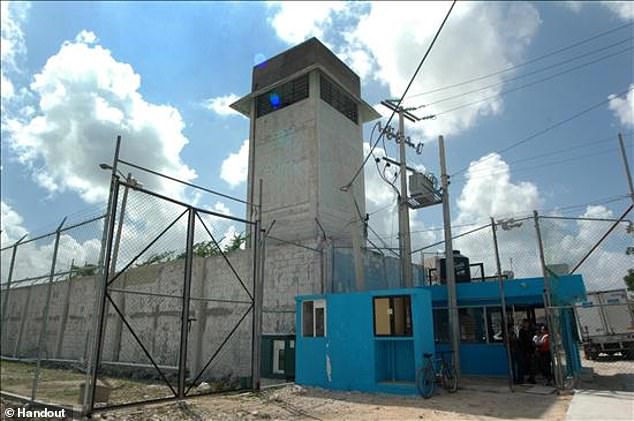
Yare prison, located in Miranda state, is controlled by gangs and best known for a 2012 riot that killed 25 inmates as rival gangsters battled for control of the correctional facility
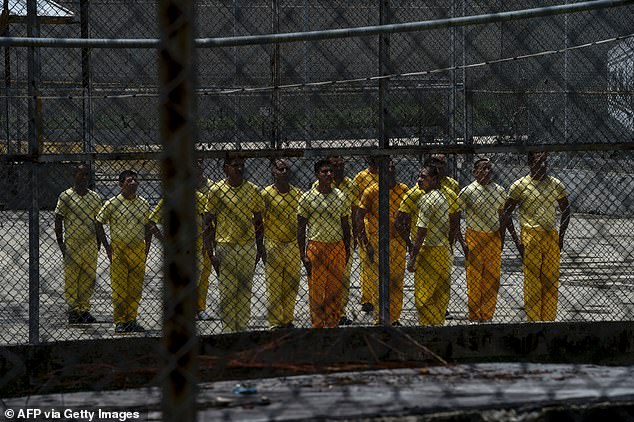

Inmates receive military training in a section of El Rodeo prison near Caracas on July 1, 2016
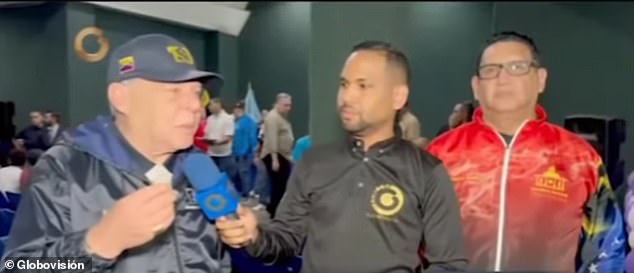

Supreme Court Justice Edgar Gavidia (left) told Venezuelan media that 100 prisoners had already been released since Friday and that cases are being reviewed to free more inmates from Yare and El Rodeo prisons
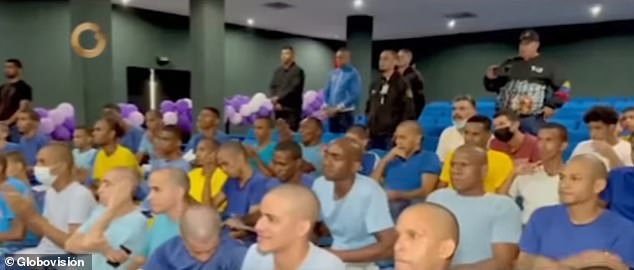

Prison inmates sat nearby as Venezuelan officials announced their cases were being released to determine who would be released
He compared them to Jose Ibarra, the Venezuelan man accused of murdering Georgia student Laken Riley.
‘These are career criminals… (Maduro) just sends more.’
The infamous Yare prison and its sister facility Yare II as well as a third prison called ‘El Rodeo’ are slowly letting prisoners go.
‘They are thugs. These are prisons where there are thugs, murderers,” Vazquez explained, adding, “These are not the prisons where they house the political opposition.”
Venezuela is positioning the release as an initiative to reform criminal justice.
‘Yare I is an “open prison” where prison wardens, known as “pranes”, rule,’ according to InSightCrime.org.
On the outskirts of the capital Caracas, El Rodeo has also been plagued by violence and corruption.
Two El Rodeo guards and a soldier were indicted on corruption charges in 2011 after a riot at the facility left 22 dead after rival gangs unleashed chaos, leading to a months-long stand-off with authorities, It was reported by the BBC.
Vazquez, a successful asylum lawyer with deep ties to Venezuelan society and an outspoken critic of the communist tyrant, was the first to raise the alarm about the releases.
“Americans need to know they are coming to the border,” the lawyer added.
Already, bad actors from South America have been tied to high-profile crimes in the States, including the brutal beating of two cops in Times Square in January.
The suspects in the NYPD beating, Kelvin Servita Arocha and Wilson Juarez, have been identified as Tren de Aragua members.
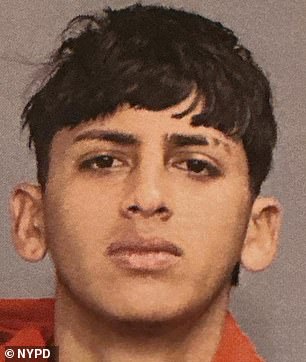

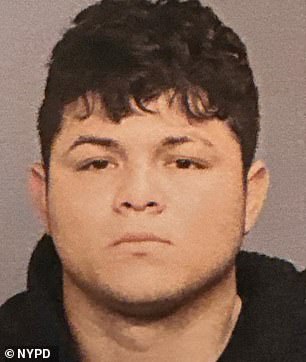

Wilson Juarez, right, and Kelvin Servita-Arocha, left, have been charged with beating NYPD officers in January. Both men are connected to the super gang Tren de Aragua
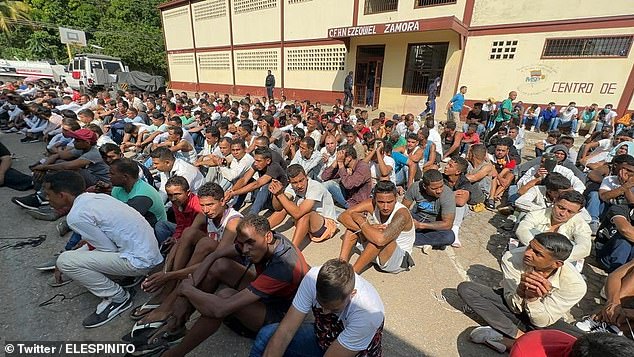

The FBI is concerned that El Tren de Aragua (pictured in a prison raid in September) is connecting with other criminal networks such as the notorious MS-13
In Miami, Tren de Aragua has already had its first US killing after member Yurwin Salazar was accused of killing a retired Venezuelan police officer who lived in Florida.
Former cop José Luis Sánchez Valera, 43, was lured by several women to a hotel in Miami at the end of November. He was abducted in the parking lot and later killed.
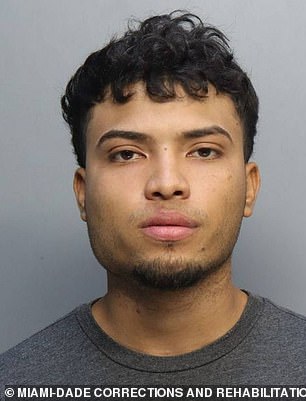

Former Venezuelan police officer Jose Luis Sanchez Valera, 43, who lived in Florida, was brutally murdered by Tren de Aragua gangster Yurwin Salazar, 23, (pictured) according to Miami officials
Yurwin Salazar, 23, a Venezuelan immigrant who has been identified as a gangster, has been charged with the murder.
Just north of Miami in Palm Beach County, the local sheriff referenced Venezuelan gangs while holding a news conference about three Guatemalan migrants accused of sexually assaulting a woman.
“Here you have three illegals who should never have been in this country,” Sheriff Ric Bradshaw said during a news conference Wednesday.
“Our intelligence section, working very closely with the FBI, has also identified that the most dangerous gangs in the world are now in Miami from Venezuela. They make MS-13 look like school kids.’
He went on to warn that the mobster could not be contained to South Florida and would end up across the country.
“We’re going to deal with this for the rest of my life and yours,” retired Border Patrol agent and current Terrell County, Texas, sheriff Thaddeus Cleveland said of the migrant crime wave.
Criminals who reach the international border between the United States and Mexico sometimes sneak into the country by paying Mexican smugglers to avoid detection.
Others pass themselves off as refugees seeking asylum, even though they may have been among those terrorizing their countrymen at home and causing them to flee.
Any migrant who presents himself at the border or is caught trying to sneak into the country undergoes a biometric background check, including fingerprints, a Border Patrol agent, speaking on condition of anonymity, told DailyMail.com.
The problem is that only those who have previously been fingerprinted or have outstanding criminal warrants will be flagged in the system.
Anyone with no prior arrests or using a false name would not.
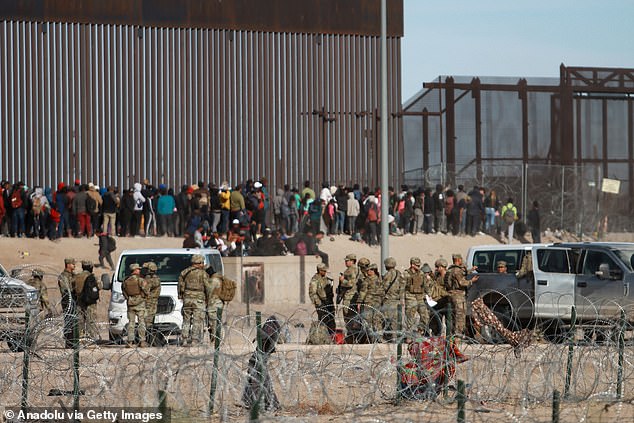

Groups of migrants of various nationalities arrive at the Rio Grande to cross it and surrender to US authorities on March 5 in El Paso, Texas
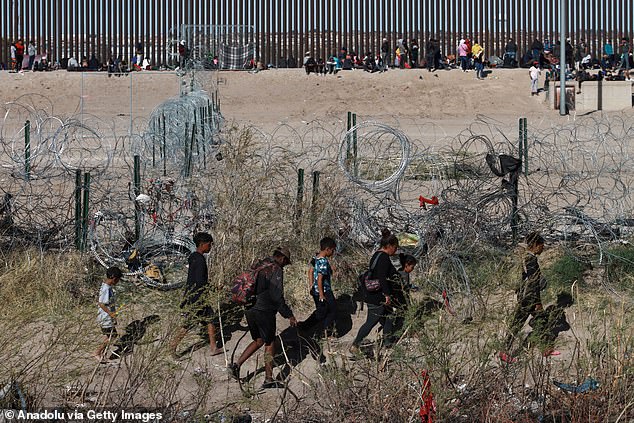

Migrants continue to cross the border between El Paso, Texas and Ciudad Juarez, Mexico
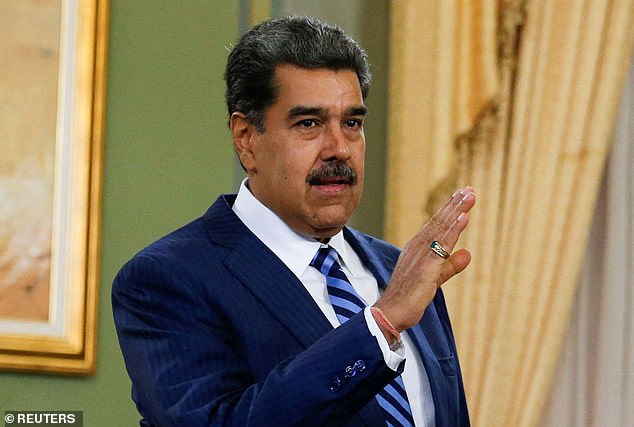

Nicholas Maduro, the president of Venezuela, was indicted in 2020 by the US government for narco-terrorism and drug trafficking. He has been in power since 2013 after former dictator Hugo Chavez died
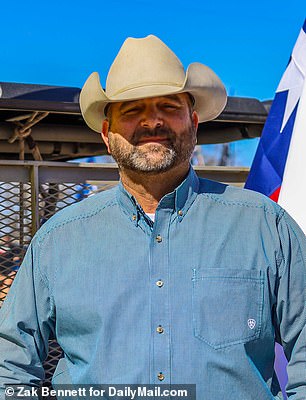

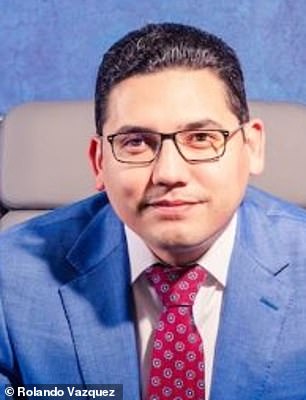

Terrell County Sheriff Thaddeus Cleveland (left) is a retired US Border Patrol agent. Rolando Vazquez (right) is an immigration attorney in Miami, Florida with strong ties to the Venezuelan community
Many Latin American countries do not have biometric screening systems or share criminal records with the United States, like Maduro’s government, which does not maintain diplomatic relations with America.
“We know people like that come in, but without a fingerprint or other criminal flag, we just have to take their word for it if they mix with the refugees,” the agent explained.
But the Biden Administration has the power to do more right now, Cleveland said.
‘We could put an end to this; two options: The president can bring back the migrant protection protocols. He should have done it for three years or he should never have taken that process away, the sheriff said.
The migrant protection protocols put in place by the Trump administration would require US immigration officials to return certain migrants to Mexico while their US deportation proceedings are pending.
However, President Biden and Mexico have argued that the program is illegal, as Mexico is not required to take any migrants other than its own nationals.
‘If you want to let migrants in, at least we can keep them locked up. Let’s put them in a detention center. When this president (Biden) came in, he cut the (Immigration and Customs Enforcement’s) budget, and with that comes reduced beds where we can hold migrants, the former immigration agent said.
‘Either we keep them in Mexico, or we keep them in a detention center here in the United States.’

